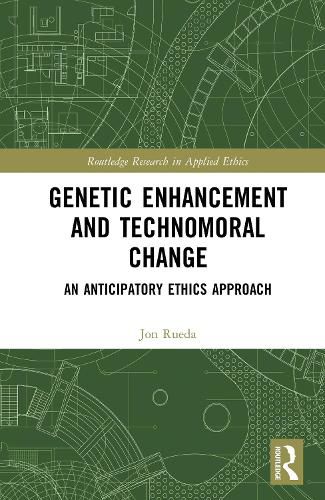Readings Newsletter
Become a Readings Member to make your shopping experience even easier.
Sign in or sign up for free!
You’re not far away from qualifying for FREE standard shipping within Australia
You’ve qualified for FREE standard shipping within Australia
The cart is loading…






This book presents a groundbreaking analysis of the anticipatory ethical issues associated with human genetic enhancement. It provides instructive clarifications for understanding the philosophy and science behind this long-standing bioethical debate, and identifies how genetic enhancement may impact the moral codes of future societies.
Part 1 examines the historical, conceptual, scientific, and ethical challenges related to human genetic enhancement. The Interlude introduces the emerging philosophical debate on technomoral change. Part 2 addresses reproductive choice, genetic justice, and equal treatment to illustrate how enhancement technologies may alter future social morality. Finally, the book explores the anticipatory governance of genetic enhancement, qualifying the necessity and limitations of public engagement, identifying different types of epistemic and moral uncertainties, and offering meta-normative recommendations for public policy.
Genetic Enhancement and Technomoral Change will be of interest to scholars and advanced students interested in bioethics, philosophy of technology, and anticipation studies of science and technology.
$9.00 standard shipping within Australia
FREE standard shipping within Australia for orders over $100.00
Express & International shipping calculated at checkout
This book presents a groundbreaking analysis of the anticipatory ethical issues associated with human genetic enhancement. It provides instructive clarifications for understanding the philosophy and science behind this long-standing bioethical debate, and identifies how genetic enhancement may impact the moral codes of future societies.
Part 1 examines the historical, conceptual, scientific, and ethical challenges related to human genetic enhancement. The Interlude introduces the emerging philosophical debate on technomoral change. Part 2 addresses reproductive choice, genetic justice, and equal treatment to illustrate how enhancement technologies may alter future social morality. Finally, the book explores the anticipatory governance of genetic enhancement, qualifying the necessity and limitations of public engagement, identifying different types of epistemic and moral uncertainties, and offering meta-normative recommendations for public policy.
Genetic Enhancement and Technomoral Change will be of interest to scholars and advanced students interested in bioethics, philosophy of technology, and anticipation studies of science and technology.